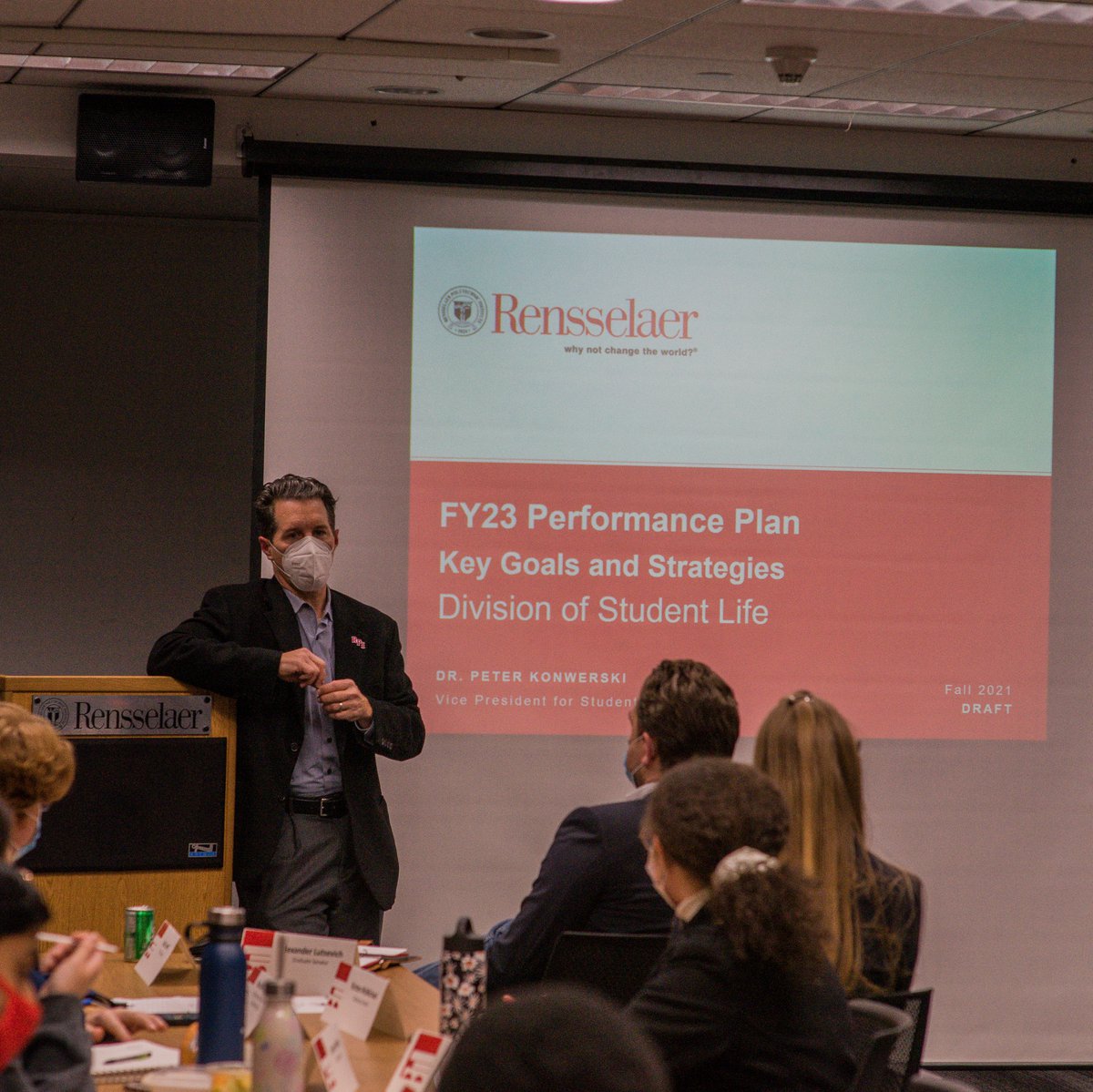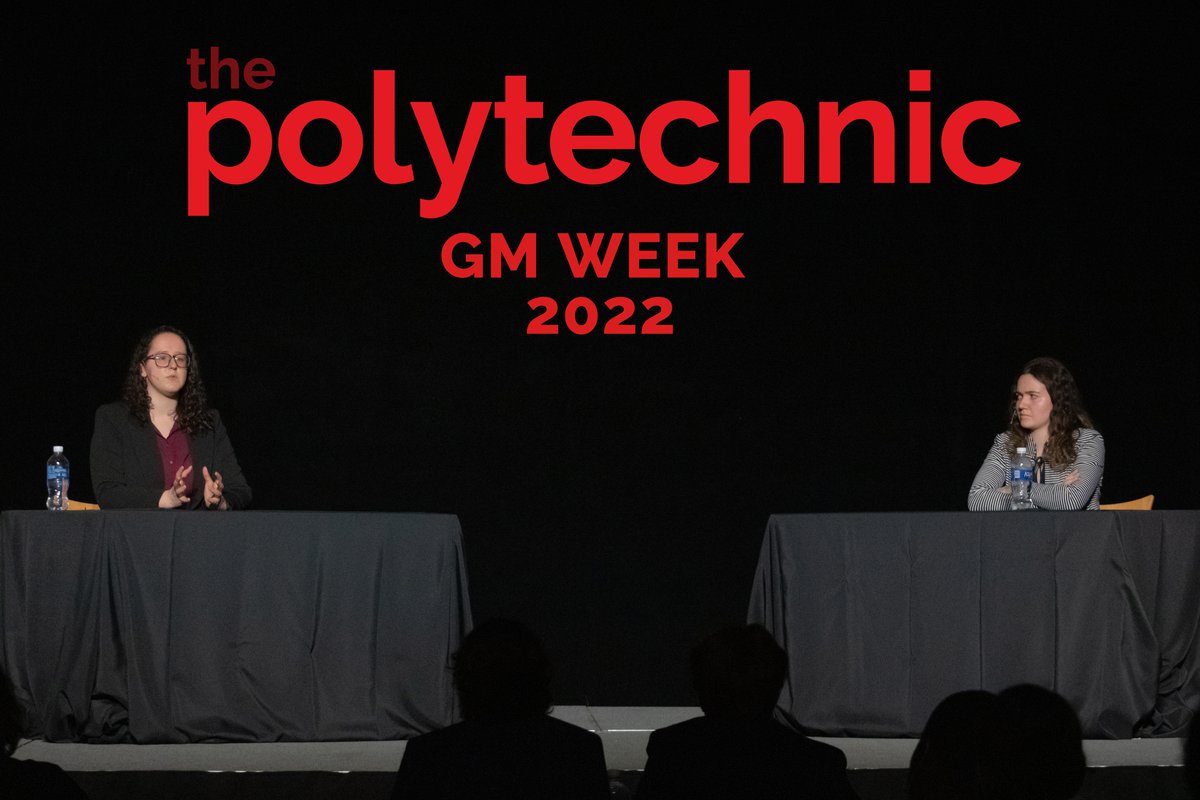Konwerski suggests parents should donate more during Student Life Performance Plan presentation

Vice President for Student Life Peter Konwerski presented the Fiscal Year 2023 Student Life Performance Plan to the Student Senate on November 16 last semester. This presentation marked the first time in seven years since the plan was presented to the Senate. The plan goes over what the Division of Student Life calls “Institute-Wide High Priorities,” which are goals that Student Life works on to assist the “academic, professional, [and] personal aspirations” of students.
One of the priorities was “Capital Campaign/Process Management,” which outlines how Student Life can obtain and use money—for example, directing sufficient fulfillment of an emergency fund for instances where students may need support through the Institute, like if a student’s laptop breaks and needs immediate replacement.
Konwerski plans to obtain some of this money through donations from parents of students. “I know your parents are supporting a significant investment, but some parents have the ability to give more. And so we’re asking them, can you give a little bit more? To support these initiatives, or to support students, or to support some activity on campus?” he said during the presentation. Konwerski also wants to reach out to alumni for donations, as well as their “time and talent.”
The total cost of attendance per year for an undergraduate is $77,763, according to the RPI Admissions website. Many students receive financial aid and do not pay the full price of tuition but according to U.S. News and CollegeFactual, the average cost after aid for private colleges is still between $38,000 to $50,000. According to the Education Data Initiative, the average cost for college in the United States is $35,000, which means the average RPI student pays more than average for college.
The Capital Campaign also includes ways to get money through “fundraising” and “support for Tier 1 partnerships.” The latter refers to institutions that want to invest in RPI with the intention of hiring students. With regards to Process Management, Konwerski wants to “automate” customer services to make it “easier or faster” to know information. The Senate was not against automation but advised “a healthy balance between automation and personal connection in customer service” in the feedback document.
After the presentation, the Senate compiled their feedback into a document. This document does not mention Konwerski’s view on asking parents for money. In fact, the ten-page document does not directly comment on the Capital Campaign aspect of the plan at all. However, the document suggests improving the advertising of the emergency fund.
Another priority of the Student Life Performance Plan was “Student Experience.” “We want to make sure…that at any developmental phase or time in your experience, we’re providing you the support that you need to be effective,” said Konwerski.
The goal of this priority is to make student life as comfortable as possible, like through improving students’ health. The Senate’s feedback document comments on ways Student Life can do this, suggesting “free pads and tampons in each building on campus” and “transferring essential furniture…donated by graduating students or moving students to students who are struggling.” The Senate also suggested looking into food pantries, including a “potential collaboration with local food pantries like St. Joseph’s.” Konwerski explained that this priority also includes academic support, interpersonal support, housing, or crisis intervention.
After the presentation, Senator Jacob Lorelli ’25 asked if the Resident Assistant program could be more “fleshed out.” Associate Vice President for Student Life and Dean of Students Travis Agpar answered: “We’re currently working through a couple of different ideas on how we should remodel the staff structure.” No specific examples of new structures were presented in either the meeting or in the feedback document.
Agpar also commented how RA employment, as implemented currently, interferes with the summer Arch. This is because many RAs are juniors, which is also when they leave the campus for their Away semester, causing an overlap in timing. Additionally, the feedback document states that many RAs feel "undervalued and underpaid," which may prevent students from becoming RAs. The feedback document suggests that removing the “required meal plan” and considering “a new benefits system, including optional or compensated meal plans and potentially higher stipends” could help prevent the understaffing of RAs. Though RAs are provided on-campus housing, RAs must pay for a meal plan, and the stipend for RAs is currently $300 a semester.
The “Underrepresented Minority Recruitment and Retention, Diversity, and Inclusion” priority outlined in the Student Life Performance Plan seeks to support students through graduation. “We want to make sure that everyone graduates in a timely manner,” Konwerski explained, through additional resources related to recruitment and retention. This includes executing trend analysis in identifying students who are the most affected and understanding why, and identifying points of growth in the Bridge, I-PERSIST, and ALAC programs. Specific details on how to identify students and growth patterns were not included in the presentation.
The Senate’s feedback document suggested advertising the ALAC program and providing “a more thorough explanation and scheduling information…on the ALAC website.” With regards to diversity and inclusion, Konwerski said: “We want [the campus] to be a welcoming, warm, inviting, and supportive environment…there’s incredible diversity of perspective, background, and culture.” He wants to make sure everyone can “find their place” in a “supportive environment.”
To do this, Konwerski said that the school has to address injustices, including racial or social justice matters, to “support those who might be affected.” The Senate’s feedback document encourages the revival of “pre-existing programs that were stopped due to COVID-19,” in order to help diversity and inclusion.
The “Pedagogical Innovation” priority of the plan seeks to improve the Arch program. Konwerski promoted three “new research initiatives” in which undergraduate and graduate students can participate: Data, Artificial Intelligence, and Computing; Center for Engineering and Precision Medicine; and Institute for Energy, Built Environment and Smart Systems. Konwerski also mentioned benefits of the Arch, such as having access to institute resources over the summer and finding both global and domestic opportunities for the Away semester.
In response, the Senate’s feedback document emphasized that “student feedback [towards the Arch] tends to be negative.” The Senate’s solution involves improving summer internship opportunities, advocating for “a more comprehensive exemption process…to ensure that we allow our students to reap the benefits of experiential learning.”
The Senate meets Tuesdays at 8 pm in the Shelnutt Gallery.

 GM Week 2022
GM Week 2022
 Student Activism
Student Activism